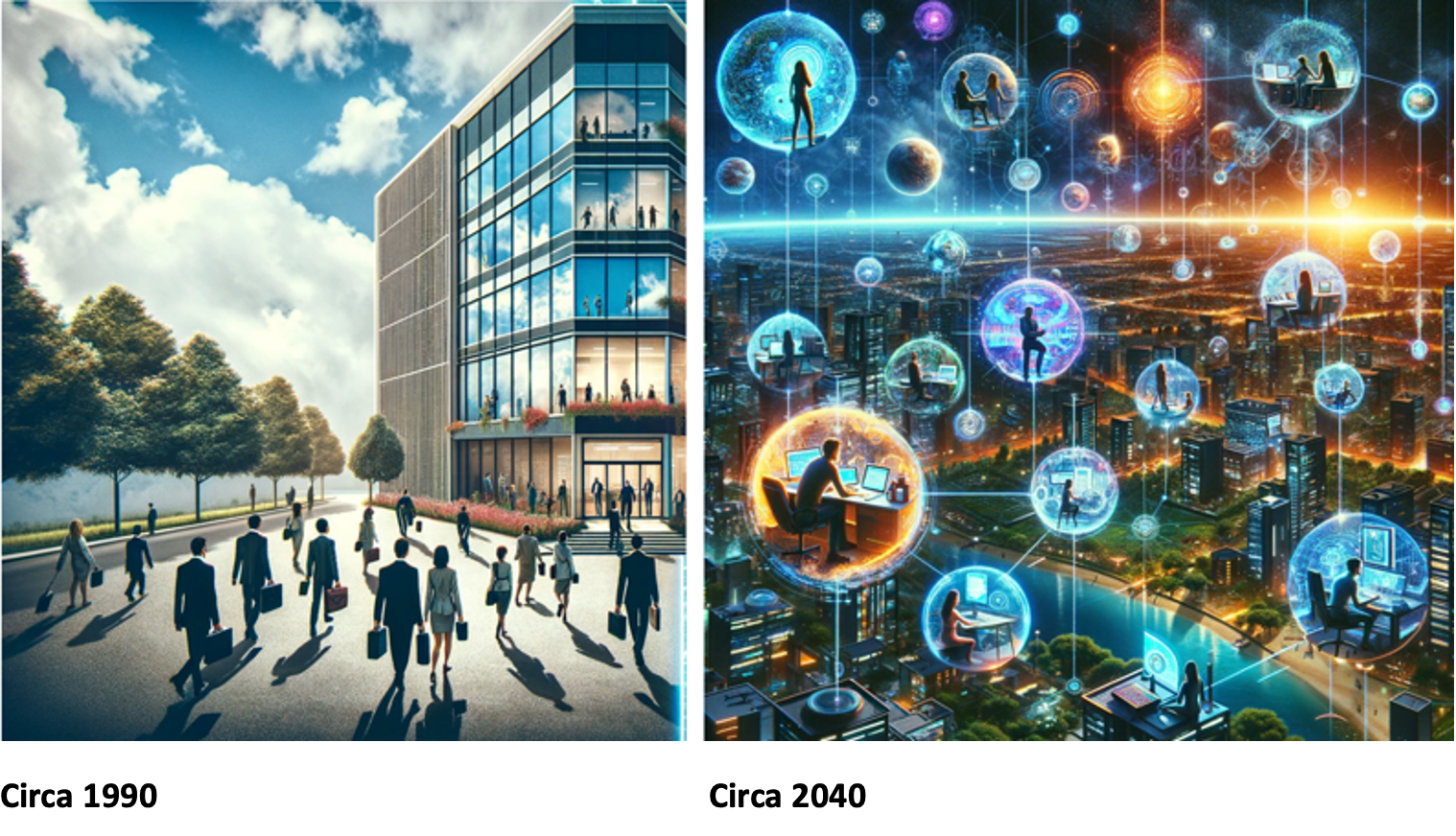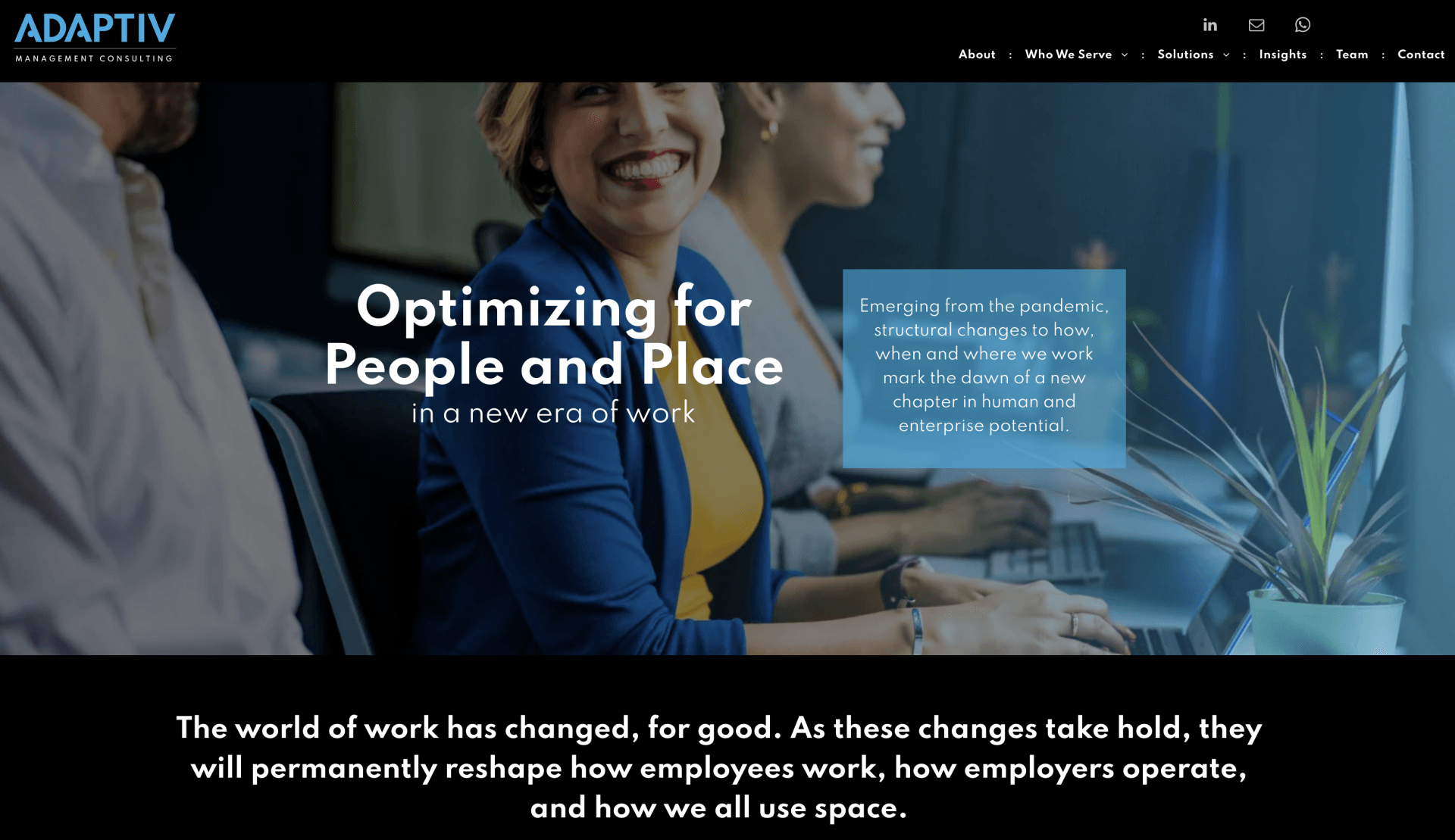Operationalizing the Hybrid Work Codex can lead to meaningful improvements for a company and its people
The Hybrid Work Codex is a framework to enable a company to respond effectively to the complexities of the modern work environment.
Instead of seeing work as a singular, monolithic entity, the Hybrid Work Codex splits it into two distinct but interconnected dimensions.


Hybrid Work Codex aims to map out these different combinations of work locations and typologies.
By understanding how different types of work are best suited to different environments, organizations can create more flexible and effective work policies. This can also help in creating better physical and digital workspaces that cater to these varying needs.
Operationalizing the Hybrid Work Codex and systematically gathering data based on its framework can lead to numerous improvements for a company. These improvements span operational efficiency, employee well-being, cost savings, and innovation.
There are several ways companies can benefit:
1. Enhanced Productivity: Understanding where and when specific tasks are most effectively executed allows companies to optimize work schedules and environments, leading to increased output and efficiency.
2. Employee Well-being & Satisfaction:
By providing flexibility based on the
Hybrid
Work Codex data, employees can work in environments where they feel most comfortable and productive. Reducing the need for commutes or allowing employees to work during their most productive hours can significantly boost morale and decrease burnout.
3. Optimized Use of Physical Space:
With data on where employees prefer to work for specific tasks, companies can design or redesign office spaces to cater to these needs, such as creating more collaborative spaces or quiet focus areas. This can also lead to cost savings by right-sizing office spaces or adopting flexible real estate strategies.
4. Cost Savings: Understanding the
Hybrid
Work Codex can lead to reduced overheads by optimizing office space, decreasing utility costs, and reducing the need for physical resources. Companies can also make informed decisions about investments in technology or infrastructure, ensuring that money is spent where it will have the most impact.
5. Talent Attraction & Retention:
Offering a flexible work environment based on the
Hybrid
Work Codex can make a company more attractive to potential employees. Current employees are more likely to stay with a company that offers a flexible and understanding work environment tailored to their needs.
6. Enhanced Collaboration & Innovation:
By identifying when and where team collaborations or ideations are most effective, companies can facilitate more innovative brainstorming sessions. This can lead to new product ideas, improved processes, or breakthrough solutions to problems.
7. Risk Management:
By having a clear view of when and where employees are working, companies can better manage risks related to security, data breaches, and health (like in the case of a pandemic).
8. Data-driven Decision Making: Companies can use the data from the
Hybrid
Work Codex to make informed decisions about everything from HR policies to IT investments. This data-driven approach ensures that decisions are based on real-world employee behavior and preferences, rather than assumptions.
9. Training & Development: Understanding the
Hybrid
Work Codex can also help companies identify when and where training and development activities are most effective, allowing for tailored programs that yield better results.
10. Cultural Cohesion: By respecting and responding to employee work preferences and patterns, companies send a message that they value their workforce, leading to a more cohesive and positive company culture.
IN SUMMARY
Operationalizing the Hybrid Work Codex can provide a holistic understanding of how work is conducted in modern organizations. This perspective allows for a suite of improvements that can drive a company's success in multiple domains.











